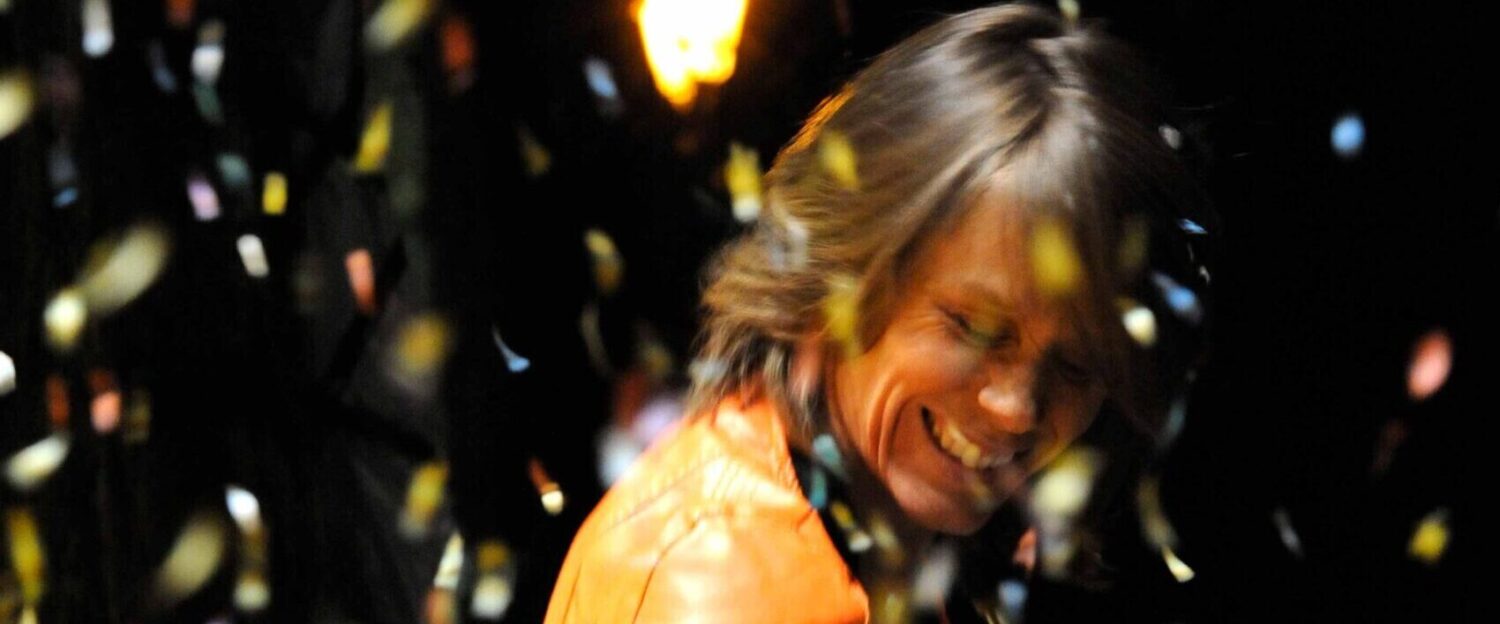
Michael Franks: The Quiet Architect of Jazz-Pop’s Golden Hour
In 1983, Passionfruit, one of Michael Franks’ most commercially successful albums, soared to No. 4 on the Billboard charts. The record landed at a pivotal moment in recording history, just as the industry was transitioning from analog to digital. With an astonishing roster of top-tier session musicians contributing to its lush sonic palette, the album remains a masterclass in musical craftsmanship. And yet, decades later, what resonates most profoundly is the timelessness of the work. Stripped of trends and gimmicks, it is only the upbeat, joyous flair of the compositions that subtly marks its era.
For younger generations unfamiliar with the magnitude of his influence, it’s difficult to fully grasp the impact that Michael Franks had, and continues to have, on the world of jazz and smooth jazz. A quintessential vocal stylist, Franks quietly dominated the genre for decades, reshaping its contours with elegance, wit, and warmth. His debut album, the self-titled Michael Franks (1973), was a revelation. In today’s music industry, such a quietly sophisticated work would likely never receive the same support. Major labels no longer invest in developing nuanced, genre-defying artists with the same level of care or financial backing.
To speak of Michael Franks is to speak of melody rendered as watercolor: gentle, luminous, and unmistakably his own. His lyrics, poetic, often whimsical, are infused with a breezy California charm that reaches its full expression on 1990’s Blue Pacific. The album’s soundscape drifts gracefully between jazz, soul, R&B, and soft pop, a seamless blend that defines the Franks aesthetic. Over the years, he has collaborated with some of the most respected names in contemporary jazz, including Chuck Loeb, Jeff Lorber, and members of the Yellowjackets, an ensemble of musical kinships so extensive, one could spend hours charting the constellation of talent orbiting his career.
Passionfruit stands shoulder to shoulder with Barefoot on the Beach (1999), another gem in Franks’ quietly dazzling catalog. These are not mere collections of songs; they are meditations, on love, on longing, on the strange beauty of ordinary days. His lyrics are like smooth stones polished by ocean tides: unhurried, precise, and resonant. His voice, breathy and unforced, feels less like a performance and more like a conversation with the soul. There is poetry in everything he does, and for many fans, that quiet magic has turned into lifelong devotion.
His most recent album, The Music in My Head (2018), feels like an epilogue, a gentle summing-up of a musical philosophy that has remained strikingly consistent over time. The title itself reads like a personal credo: for Franks, music is an internal compass, where words and rhythms interweave not to impress, but to illuminate. His work resists the superficiality of trends, opting instead for a richer, more intimate connection with the listener.
Collectors often speak of owning Franks’ entire discography as if it were a personal archive of calm and contemplation. And indeed, there is something undeniably profound about starting the day with his music, serene, intelligent, and unexpectedly moving. Without Michael Franks, it’s fair to say we might not have seen the rise of vocal innovators like Kurt Elling or Michael Mayo. He paved the way for a new generation of male vocalists to embrace their individuality, to blend jazz with poetry, irony, and tenderness in a way that had rarely been done before.
For all his impact, Franks remains a paradox: a giant of the genre, yet remarkably understated in his presence. His official website is minimalist, almost self-effacing, but his global influence continues to shimmer undiminished. In an era of noise, his quiet voice endures, as necessary and nourishing as ever.
By Thierry De Clemensat
Member, Jazz Journalists Association
Editor-in-Chief, Bayou Blue Radio
U.S. Correspondent – Paris-Move / ABS Magazine
Tracklist :
Alone At Night
Never Satisfied
Amazon
Now That Your Joystick’s Broke
Sunday Morning Here with You
Never Say Die
Rainy Night In Tokyo
Tell Me All About It
When Sly Calls (Don’t Touch That Phone)
How The Garden Grows
Musicians :
Michael Franks – vocals, backing vocals (6)
Rob Mounsey – synthesizers, acoustic piano (1), Fender Rhodes (2, 3, 7-9), breathalyzer solo (5)
Pat Rebillot – Fender Rhodes (5), acoustic piano (6)
Hiram Bullock – guitar solo (1), guitars (4)
Jeff Mironov – guitars (1, 2, 9), classical guitar (3, 8, 10), acoustic guitar (6), D’Aquisto electric-acoustic guitar (7)
Hugh McCracken – 12-string guitar (3), tiples (3)
John Tropea – guitars (5), electric guitar (6, 10)
Will Lee – bass (1-3, 7, 9), backing vocals (1-3, 7)
Neil Jason – bass (5, 6, 10), 8-string bass (8)
Chris Parker – drums (1-3, 7, 9), ice bells (6)
Steve Gadd – drums (5, 6, 8, 10)
Sue Evans – percussion (2, 5, 7, 9, 10), salt packets (8)
Naná Vasconcelos – percussion (3), caxixi (7), tambourine (7)
Dave Tofani – alto saxophone (1)
Eddie Daniels – alto flute (1), alto flute solo (3)
George Marge – alto recorder (7)
Jon Faddis – flugelhorn (1)
Randy Brecker – trumpet solo (1), flugelhorn solo (9)
Toots Thielemans – harmonica (2, 10)
Hamish Stuart – backing vocals (1-3, 7)
Kacey Cisyk – backing vocals (2, 3, 6, 7, 9)
Lesley Miller – backing vocals (2, 3, 6, 7, 9)
Astrud Gilberto – backing vocals (3)
Kenny Rankin – backing vocals (5)
Frank Floyd – Sly’s voice (9)
String section
David Nadien – concertmaster
Homer Mensch and John Miller – double bass
Jonathan Abramowitz, Warren Lash and Charles McCracken – cello
Gloria Agostini – harp
Lamar Alsop, Judy Geist, Theodore Israel and Emanuel Vardi – viola
Elena Barere, Lew Eley, Barry Finclair, Regis Iandiorio, Charles Libove, Jan Mullen, John Pintavalle, Matthew Raimondi, Richard Sortomme and Gerald Tarack – violin


